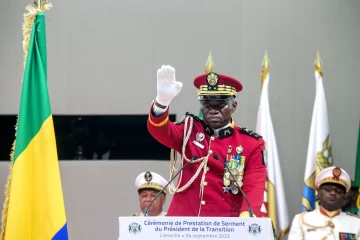
The current Ebola outbreak in West Africa has claimed close to 5,000 lives. The UN predicts up to 10,000 new cases per week could soon be witnessed. World Bank president Jim Yong Kim has warned that the future of West Africa, and possibly all of Africa, is at stake. No one knows how many will die before the crisis is controlled, and it largely depends on the speed a vaccine can be produced. British pharmaceutical giant GlaxoSmithKline has predicted a working vaccine will not be ready until late 2015. By then, almost $33 billion in growth will have been lost according to World Bank estimates, not to mention thousands of lives. In the face of such disturbing predictions, what Jim Yong Kim called the “late, inadequate and slow” global response to this crisis becomes ever more starkly shameful. The most obvious demonstration of the limp response from the international community is the fact that a month after a $1 billion trust fund was set up by the UN to respond to Ebola, only $100,000 had been donated.
For Professor John Ashton, president of the UK Faculty of Public Health, the reason for the lacklustre international response lies in the political powerlessness of the victims. Writing in The Independent, he compared the current Ebola crisis to the initial AIDS outbreak. In both cases, Western public interest, and by extension treatment research funding, spiked when the victims became more recognisable to the majority. Whether it is heterosexual victims or US medical professionals, for Ashton, people care when the victims are familiar.
This self-interested relationship with medical crises is not restricted to the general public. Dr Ben Neuman, virologist at the University of Reading, wrote earlier this year: “why should the government of a country like the UK expend a large amount of money on Ebola, which only seems to crop up in sub-Saharan Africa[?]”
Whether driven by Machiavellian self-interest or something else, Dr Neuman’s comments on Ebola highlight a profound lack of care in the pharmaceutical industry for tackling Neglected Tropical Diseases (NTDs), a term the World Health Organisation uses to indicate diseases that receive little attention in vaccine research. The pharmaceutical industry itself is a $300 billion a year behemoth that spends twice as much on marketing as it does on research and development. Only four of the twelve biggest companies are even engaged in research right now, and most of it is heavily skewed toward finding the most economically valuable products. Diseases and conditions suffered predominantly by wealthier, largely Western individuals such as heart disease and cancer receive the lion’s share of research attention.
These are undoubtedly worthwhile endeavours. But, when governed by the free market, the pharmaceutical industry forgets Africa. This is something the World Health Organisation have tried to fix. In 2012, they convinced several major pharmaceutical companies, including GlaxoSmithKline, to sign the London Declaration. This pledged to eliminate at least 10 NTDs from a list of 17 by 2020. Ebola was not on this list. As with all voluntary pledges, there was no binding agreement other than a reminder of the social responsibility the pharmaceutical industry should have.
The WHO had neglected to see the potential danger posed by Ebola as a result of the small scale of each previous outbreak. However, had they been more concerned about it, it is unlikely anyone would have listened. Anthony Fauci, head of the National Institute of Allergy and Infectious Diseases, believes that the reason why an Ebola vaccine was not produced years ago is down to the “limited scope for profit.” As with most NTDs, the vast majority of Ebola victims will be poor. From a commercial standpoint, the logic is sound – there is no need to produce a vaccine that most patients can’t afford.
Such cold calculations are made every day by pharmaceutical companies. However, there are individuals determined to see the situation change. The Bill and Melinda Gates Foundation have been funding NTD research for a long time. But philanthropists, whilst invaluable to current research projects, are as vulnerable to shifting attention spans as the rest of the general public. The Gates Foundation donated $50 million to fight Ebola in September. This was hearteningly generous, but it came nine months after the first Ebola case was reported. In order to tackle epidemics such as Ebola, there is a need for funds and research to be ready as soon as, or even before, the outbreak occurs.
World Bank president Jim Yong Kim recently called for the creation of a global “crisis fund” for responding to epidemics such as Ebola. But in light of the recent response from the international community to the Ebola outbreak, it is unlikely such a crisis fund would ever be usefully large.
As with the fallout from the global financial crisis, the economic lesson to be learned from the current Ebola outbreak is that the free market cannot provide the answer to all catastrophes, and in fact can confound these events. Again, as with the financial crisis, the answer is to make the free market less ‘free’. Using the United Nations, the global reaction to the Ebola response should be a call for the implementation of legally binding frameworks that guarantee the necessary funds to research, produce and stockpile vaccines for diseases that would otherwise receive little to no attention. If funding for such research were legally obligated to come from the World Bank, IMF or other such organisation, governments would be compelled to donate to this endeavour whilst private philanthropists would be encouraged to participate. It is lamentable that governments and big business alike are unwilling to participate in efforts to help those without the sufficient means to help themselves. But the UN at least offers the possibility, however slight, of establishing a legal framework to make those with the most to give that little bit more moral.


